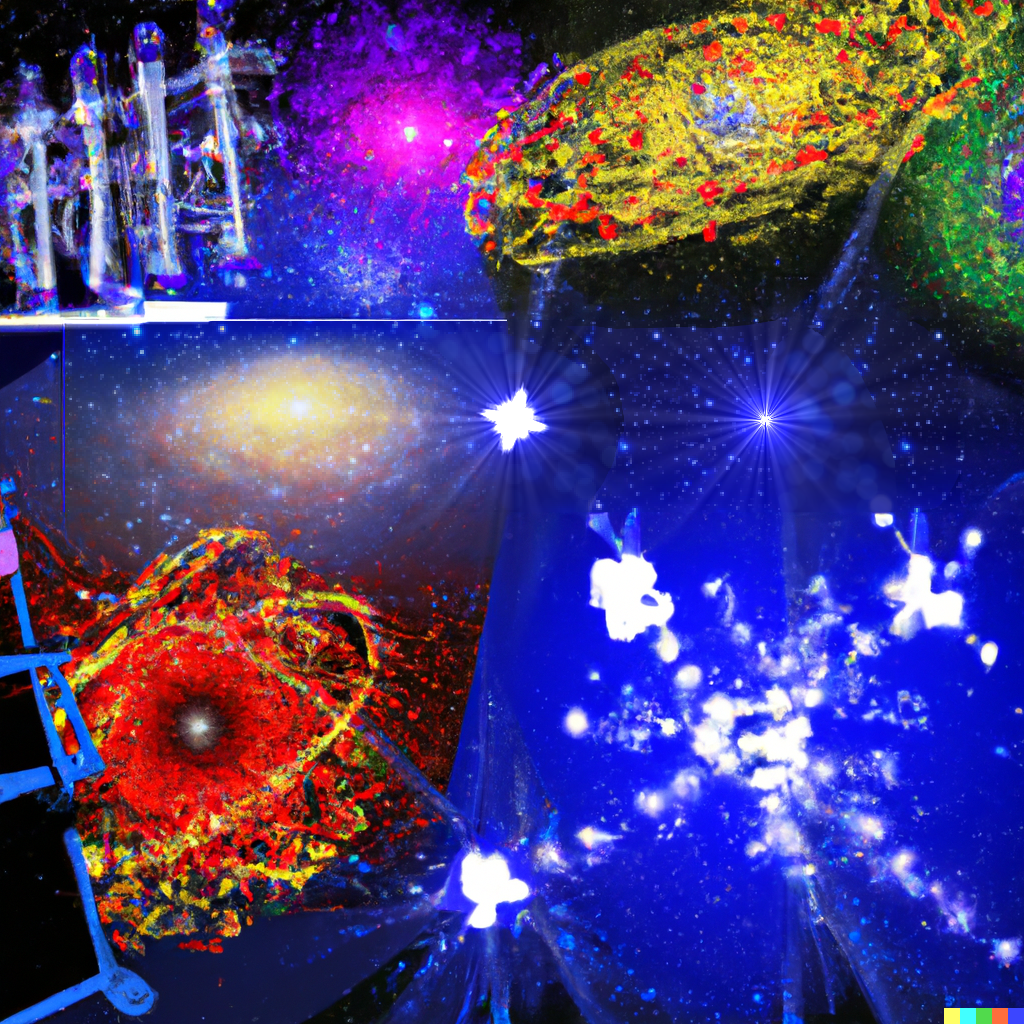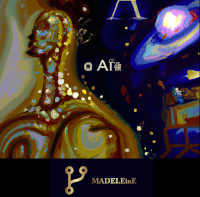
Applying Artificial Intelligence methods to Astrophysics.
MADELEinE (MAchine and DEep LEarning in Experiments) is a research program (PI: Antonio Pagliaro) that focuses on the application of Artificial Intelligence (AI) methods in the field of astrophysics and astroparticle physics. The program aims to use cutting-edge AI techniques to analyze large datasets from telescopes and particle detectors, with the goal of revolutionizing our understanding of the universe.
One of the main research areas of the MADELEinE program is the development of deep learning algorithms for image classification and object detection in astronomical datasets. These algorithms use neural networks to automatically identify and classify objects in images, greatly speeding up the process of analyzing large amounts of data and improving the accuracy of the results. These techniques can be applied to a wide range of astronomical data, including images from ground-based telescopes, space-based observatories, and particle detectors.
The MADELEinE team focuses mainly on the ASTRI-Horn telescope and ASTRI Mini-Array (MA) experiment, using Machine and Deep Learning methods to analyze data from Imaging Atmospheric Cherenkov Telescopes (IACTs). This will help improve the sensitivity of these telescopes and aid in the discovery of new phenomena in the universe. Furthermore, in a different case, we also apply Deep Learning methods to the infra-red data from stratospheric balloons (EUSO-SPB1, EUSO-SPB2), and to the UV data from space (Mini-EUSO) with the JEM-EUSO program. These techniques are also applied to satellite data for a more general use in the framework of the Atmospheric Monitoring.

The research conducted by the MADELEinE program is ambitious and aims to push the boundaries of what is possible with Artificial Intelligence in the field of astrophysics and astroparticle physics. The team believes that these techniques have the potential to greatly improve our understanding of the universe and lead to new discoveries.
In addition to developing deep learning algorithms, the MADELEinE team also conducts research on other AI techniques such as machine learning and computer vision. These techniques are used to analyze various types of data.
Our team is composed of experts in the fields of AI, astrophysics, and computer science. We collaborate with other researchers and institutions in the field to achieve our research goals and make new discoveries.
The MADELEinE program also conducts outreach activities to share our research with the public and inspire the next generation of scientists. We regularly present our findings at conferences and publish our research in scientific journals. We also offer opportunities for students and researchers to join our team and contribute to our ongoing projects.
If you are interested in learning more about our research or would like to collaborate with us, please do not hesitate to contact us. We are always looking for new opportunities to work with other researchers and institutions in the field.
The research program is carried out partly within the framework of the NATIONAL CENTRE FOR HPC, BIG DATA AND QUANTUM COMPUTING – Spoke 2 – FUNDAMENTAL RESEARCH & SPACE ECONOMY.

Contact person
Antonio Pagliaro
Team
Anna Anzalone
A. Alessio Compagnino
Giancarlo Cusumano
Antonino La Barbera
Valentina La Parola
Antonio Pagliaro
Pierluca Sangiorgi
Antonio Tutone
Recent MADELEinE Papers
An Introduction to Machine Learning Methods for Fraud Detection
Artificial Intelligence vs. Efficient Markets: A Critical Reassessment of Predictive Models in the Big Data Era
Machine Learning-Enhanced Discrimination of Gamma-Ray and Hadron Events Using Temporal Fetaures
Advanced AI and Machine Learning Techniques for Time Series Analysis and Pattern Recognition
An Introduction to Machine and Deep Learning Methods for Cloud Masking Applications
AI in Experiments: Present Status and Future Prospects
Application of Machine Learning Ensemble Methods to ASTRI Mini-Array Cherenkov Event Reconstruction
Forecasting Significant Stock Market Price Changes Using Machine Learning: Extra Trees Classifier Leads
Application of Machine and Deep Learning Methods to the Analysis of IACTs Data